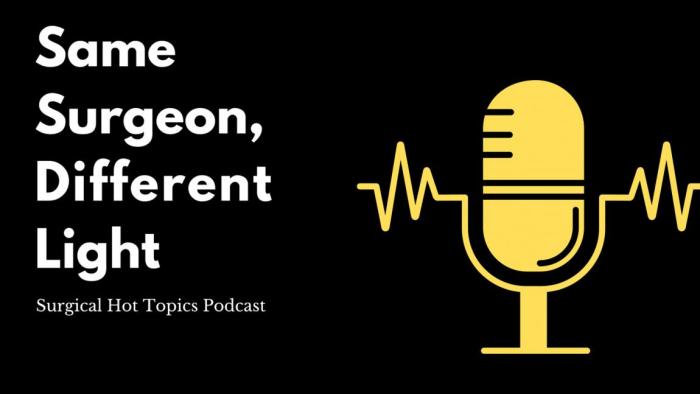FAIRFAX, VIRGINIA (March 11, 2024) - As use of prosthetic heart valves and implanted cardiac devices has increased, so too has the incidence of cardiovascular infection. While accurate diagnosis of this condition is critical for guiding treatment decisions that can prevent death and significant morbidity, current assessment strategies have proven insufficient. Recommendations released by 11 professional medical societies, including the Society of Thoracic Surgeons, detail a standardized approach for using PET/CT and SPECT/CT imaging to improve the evaluation and subsequent outcomes of patients with cardiovascular infection. The expert consensus statement – “18F-FDG PET/CT and Radiolabeled Leukocyte SPECT/CT Imaging for the Evaluation of Cardiovascular Infection in the Multimodality Context” – is published online in the Journal of Nuclear Cardiology, Clinical Infectious Disease, Heart Rhythm Journal, and JACC: Cardiovascular Imaging.
“The stakes are high with cardiovascular infection because the incidence is increasing and there is associated high morbidity and mortality,” says Jamieson M. Bourque, MD, MHS, FASNC, chair of the statement’s multisociety writing committee. “Other guidelines have recognized that FDG PET/CT and SPECT/CT imaging have high diagnostic accuracy with cardiovascular infection and can provide important information on the infection site, severity, cause, and whether the infection has spread outside the heart. This document does what others have not – it provides evidence-based consensus on specific clinical scenarios where FDG PET/CT and SPECT/CT add value for patient care in the context of robust multimodality imaging approaches available.”
Reflecting its multidisciplinary authorship, the statement emphasizes the complementary nature of advanced imaging modalities. It outlines the indications for echocardiography, cardiac computed tomography angiography, radiolabeled leukocyte SPECT/CT and 18F-FDG PET/CT in cardiovascular infection evaluation. The authors then provide a consensus-derived clinical indication rating of "appropriate," "may be appropriate," or "rarely appropriate" for use of 18F-FDG PET/CT and SPECT/CT in 73 clinical scenarios encompassing suspected native and prosthetic valve infective endocarditis, suspected cardiovascular implantable electronic device (CIED) infections, suspected prosthetic material infection, and suspected ventricular assist device (VAD) infection.
The expert consensus recommendations statement also includes:
- Diagnostic algorithmic flowcharts for suspected native or prosthetic valve infective endocarditis or prosthetic material/VAD infection and for suspected CIED infection;
- Teaching images from cases where 18F-FDG PET/CT and SPECT/CT studies were used in prosthetic valve endocarditis, CIED pocket and lead infection, VAD infection and prosthetic material infection; and
- Teaching case examples where 18F-FDG PET/CT and SPECT/CT were used to assess prosthetic valve endocarditis, suspected lead CIED infection, suspected VAD infection and suspected prosthetic material infection.
“18F-FDG PET/CT and Radiolabeled Leukocyte SPECT/CT Imaging for the Evaluation of Cardiovascular Infection in the Multimodality Context” is the first document in the new American Society of Nuclear Cardiology Imaging Indications (ASNC I2) Series. Eleven partnering organizations participated in writing these recommendations and endorsed the document: The American Society of Nuclear Cardiology (ASNC), the American Association for Thoracic Surgery (AATS), the American College of Cardiology (ACC), the American Heart Association (AHA), the American Society of Echocardiography (ASE), the European Association of Nuclear Medicine (EANM), the Heart Rhythm Society (HRS), the Infectious Diseases Society of America (IDSA), the Society of Cardiovascular Computed Tomography (SCCT), the Society of Nuclear Medicine and Molecular Imaging (SNMMI) and the Society of Thoracic Surgeons (STS). The writing committee included representatives from each of the partnering organizations.
Read the consensus statement.
# # #
ABOUT ASNC
The American Society of Nuclear Cardiology and its 5,200 members have been improving cardiovascular outcomes through image-guided patient management for more than 30 years. As the leading society dedicated solely to the field of nuclear cardiology, ASNC establishes standards for excellence in cardiovascular imaging through the development of clinical guidelines, professional medical education, advocacy and research development. ASNC provides peer-reviewed original articles through its official publication, The Journal of Nuclear Cardiology. For more information, visit http://www.asnc.org.
ABOUT STS
Founded in 1964, The Society of Thoracic Surgeons is a not-for-profit organization representing more than 7,700 cardiothoracic surgeons, researchers, and allied healthcare professionals worldwide who are dedicated to ensuring the best possible outcomes for surgeries of the heart, lung, and esophagus, as well as other surgical procedures within the chest. The Society’s mission is to enhance the ability of cardiothoracic surgeons to provide the highest quality patient care through education, research, and advocacy.
